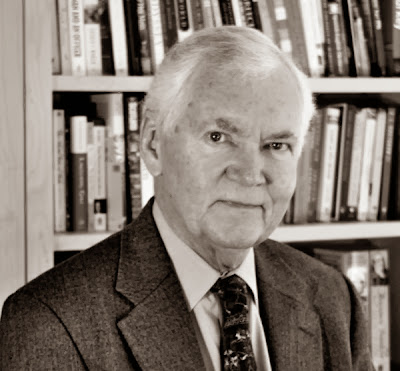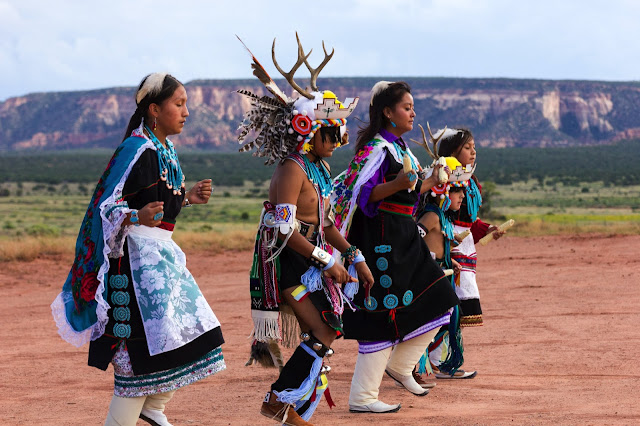7 Questions for Laughlin McDonald, of the ACLU
This article appeared in Indian Country Today in 2013. For more on topics like this, see my book, American Apartheid: The Native American Struggle....
 |
| Laughlin McDonald |
Last month, Laughlin McDonald, director emeritus of the American Civil Liberties Union’s Voting Rights Project, filed his 14th Native civil-rights lawsuit. The plaintiffs are Fort Peck tribal members who want equal representation in school board elections in Wolf Point, Montana, where many of their children attend school.
Thirty years ago, McDonald’s first Indian-country lawsuit got underway just a few hundred miles away. In 1983, in Windy Boy v. County of Big Horn, Montana, McDonald and Montana attorney Jeffrey Renz represented Crow and Northern Cheyenne voters who wanted to elect candidates of their choice to the county commission and school board. In between, the legendary civil-rights attorney participated in Native enfranchisement cases throughout the West, testified before Congress multiple times and wrote several books and numerous articles.
A U.S. Army veteran and University of Virginia Law School graduate, McDonald became a staff attorney with the ACLU’s Southern Regional Office in 1966, taking over as director in 1972. Under his stewardship, the office’s Voting Rights Project has won many landmark cases in the South and around the country. It is one of the nation’s largest and most influential nonprofits litigating for civil rights.
Here’s what McDonald says has, and hasn’t, changed for Native voters over the past 30 years:
1. Your 1983 and 2013 voting-rights lawsuits have striking similarities. In other recent cases, jurisdictions you sued years ago are defendants once again. Are Native voting rights running in place?
There’s been progress—no doubt about that. Lawsuits have resulted in the creation of districts that allow Indian people to elect representatives of their choice. Tribal members have become aware of the value of participating in non-tribal elections. If you don’t vote, you’re not only denied the benefits of the government or school board, but you become its victim.
When we filed the 1983 lawsuit, no tribal member had ever been elected to Big Horn County’s commission. After we won, redistricting meant an Indian was elected. The Indian population has increased since then, and tribal members now hold several county positions. There’s been enormous change, here and elsewhere.
2. Increases in tribal populations mean a growing fear of what a state official recently called “unleashing” the Native vote. Is white backlash inevitable?
There certainly are recent examples. Right-wing organizations have tried to abolish the reservations and do away with Indians’ status. A white organization filed a lawsuit to get precincts closed on the Crow and Northern Cheyenne reservations, claiming fraud had occurred; the suit was subsequently dismissed by the plaintiffs
3. Why are unproven allegations of Indian election fraud so common?
Some people don’t want to see Indians vote, and it’s a good pretext.
4. The majority opinion in Shelby v. Holder pronounced about the country as a whole but never mentioned Native people. Are they the forgotten voters?
Indian country is a blank for most non-Native people, whether they live far from a reservation or right next door. Many have little knowledge of the concept of sovereignty, or even that Indians are U.S. citizens. In a case in Fremont County, Wyoming, I took a deposition from a county commissioner who had driven through the Wind River reservation, but had never stopped, never visited, never gotten to know tribal members. She was embarrassed to realize she knew nothing about many people in her district—and she wasn’t the only county official in this position.
5. In your latest lawsuit, you ask the court to “bail in” Wolf Point’s school district under the Voting Rights Act’s Section 3, so its election practices come under Justice Department scrutiny. Will bail-ins receive new emphasis in voting-rights litigation?
Bail-in has been applied in the past. New Mexico, Arkansas and jurisdictions in seven other states have been bailed in. Going forward, when Congress responds to the Supreme Court’s Shelby v. Holder decision, it should expand the bail-in’s reach, so it applies to not just 14th- and 15th-amendment violations, which require proof of discriminatory intent, but any federal voting-rights statute that protects racial and language minorities. VRA Section 2 violations, for example, require proof of discriminatory effect, which is easier to do.
Congress can expand the bail-in while reconsidering the coverage formula that the Supreme Court struck down and finding more ways to strengthen Section 2. The Senate and House have already held hearings in response to Shelby. We have to get Congress to do the right thing.
6. Why are voting rights so elusive in a country that calls itself a great democracy?
We like to think this country was founded on concepts of democracy but it was actually founded on principles of aristocracy, with voting originally restricted to white male property owners over age 21. After the Civil War, the 14th and 15th amendments enfranchised African Americans. The 19th amendment gave women the right to vote in 1920, and the 1924 Indian Citizenship Act enfranchised all Native people.
However, those in control have shown a great willingness to adopt a whole range of discriminatory measures so they can stay in charge. The techniques devised in the South after Reconstruction, and elsewhere, to keep minorities out of the polling places have ranged from literacy tests and poll taxes to whites-only primaries and outright intimidation. The 1965 Voting Rights Act addressed this, but even so, many states have passed new suppression measures. They have shortened early voting time, added restrictions to voter ID and more. These efforts accelerated after the Shelby decision.
So, as we at the Voting Rights Project file and win lawsuits, and as we offer amicus briefs and consultation for others’ cases, we see increased participation by minority voters on the one hand and efforts to stymie it on the other. It’s an ongoing process, with progress despite setbacks.
7. What have your Indian-country cases meant to you personally?
Developing friendship with tribal members, including those we’ve represented and witnesses, has opened up my world significantly. I’ve seen what they have gone through and continue to endure.
Text c. Stephanie Woodard. Photograph courtesy Laughlin McDonald; see also his book, American Indians and the Fight for Equal Voting Rights (Oklahoma Press, 2010). This article was supported by the George Polk Center for Investigative Reporting.

